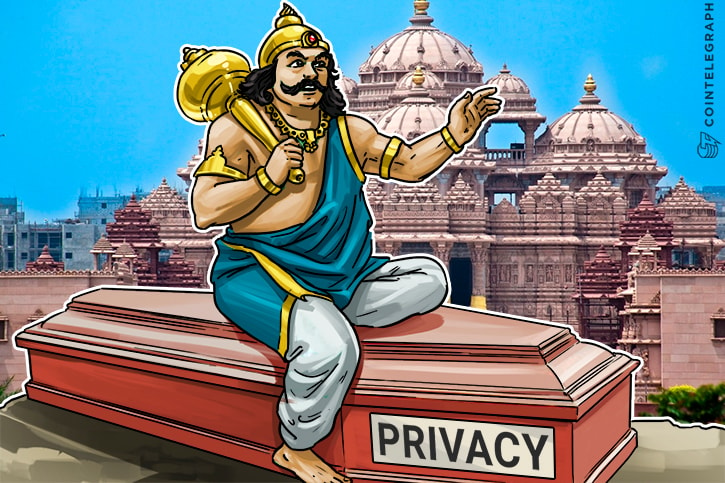Imagine the government being able to track your every move.
If you purchased an air ticket or a plane ticket. If you filed your taxes, if you purchased a bottle of LPG or even if you were the receiver of benefits from the state. Imagine not being allowed to travel or file your taxes, if you did not want to be tracked.
India has a unique identification scheme by the name of Aadhar, which collects the biometric and demographic details of citizens. This Aadhar number was supposed to be voluntary when the government began talking about it way back in 2009 but it has slowly crept into every aspect of the public and private life of Indian citizens.
It should be noted that the whole Aadhar project’s voluntary or mandatory status is dependent upon a decision of the Indian Supreme Court and it has still not been decided by India’s highest court if Aadhar can be forced upon the people.
Acting by stealth
The government in India has been trying to get citizens to enroll in the Aadhar scheme for a while now and they have certainly been successful.
It is estimated that as of March 31, 2017, Aadhar enrolment is now at 99 percent of the population. However, various state governments and the central government have been passing strictures that have increasingly made the use of Aadhar to get services nearly ubiquitous. The Indian news website was rather direct in saying,
“Every time the government tries to make the Unique Identity mandatory for another project, it is violating the Supreme Court order.”
The Indian government has been sneakily trying to introduce Aadhar for even basic necessities like the Midday meal scheme aimed at underprivileged children.
Of course, the proponents of Aadhar claim that it is just a way to plug ‘leakages’ in the subsidies that the state provides but on the other hand they grossly play down the problems with the project.
Creating a honeypot
The basic problem with the Aadhar project is that it creates a centralized database, which is enticing and appealing to those that would like to steal this information. State kept biometric databases, which store critical demographic and biometric information are susceptible to hacking.
Another country which has a biometric project is Israel, where a lot of debate has been happening around the security of these data.
The Israeli newspaper Haaretz while covering the story writes,
“Even the seemingly most secure databases in the world are vulnerable to hackers, which begs questions about the security of the Israeli biometric database.”
No right to privacy
In India, there is a long history of state-sponsored violation of privacy. The Indian government even went so far as to claim in the Supreme Court that Indian citizens do not have a fundamental right to privacy.
India’s Attorney General Mukul Rohtagi claimed before the Supreme Court,
“Constitution makers did not intend to make the right to privacy a fundamental right.”
In this light, it would be odd to trust the state to protect your vital information from its agents. In fact, the new Aadhar bill has few if little safeguards to protect information from state-run agencies. Under the provisions of the Aadhar Bill information in the database can be shared with law enforcement in the interests of ‘national security’ whatever that may mean.
Cryptography is the answer to this mess
At the moment the best safeguard that anyone has against possible threats to privacy and security is to simply stay out of the Aadhar database, though it is becoming difficult to keep doing so.
With the linking of Aadhar with bank accounts and an Aadhar based payment application called ‘BHIM’, the chances are that even your tiniest transactions can be tracked. There are some people who do not value security through anonymity and there are others including authorities, who are claiming that people freely share their private information with private players like facebook, twitter etc.
However, keep in mind that using facebook or twitter is completely voluntary and if you do not want to do that you can simply choose not to.
Also, facebook does not have the power to toss you in prison for life, while the government does!
If you value your freedom, use a system that values your privacy and respects you as an individual and does not insist on turning you into a number. Opt for cryptographic-based solutions like Bitcoin.
Not only does Bitcoin protect your private information, you also are able to participate in a currency that has overall given solid returns to investors. The choice is yours.


